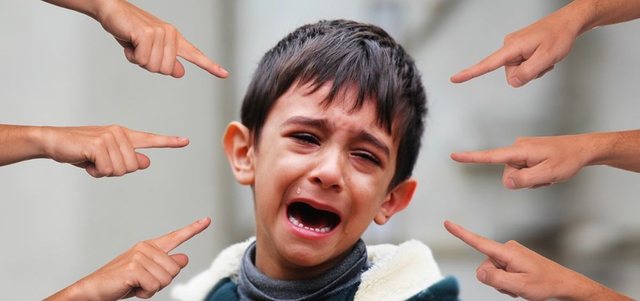
Many children are persecuted by other children. And, of course, you would like to know if your child is one of them and you can help. Not so good at mind reading? Specialists say the best way to find out if your child is being abused is to cultivate an open relationship so they can talk to you when something goes wrong and watch carefully for any warning signs.
If there is a problem, listen carefully before taking action, Stan Davis, an American bullism researcher and former school counselor, told Real Simple. "Stay calm ," he says. " We have found in our nation-wide research that what children see as the greatest help from an adult after suffering bullying is that this adult listens to them." Ask what happened, how often, what the child thinks and how they are bullied. If the issue is serious, discuss it with a teacher, school psychologist, or school principal.
There are no clear signs of bullshit, ah it would be that simple! Since a behavior is explained by many factors, but paying attention to these common signs can help you spot the problem.
The child no longer likes what he liked
Lack of desire is a sign of depression. If your child has lost interest in foods, games, or hobbies they like, pay attention. Say you have noticed that he is demoralized and ask him to talk about it. "It's a little bit sad," he says, "but when you start feeling hopeless, lacking in joy and the spark of life, it's something to worry about. It is something that should encourage you to look deeper into your childâ?¦ .It may not be the reason for bullism, it may be many more. There is no way to find out the reason without asking. "

The obsessed one on Instagram, closes the account
A dramatic change in the way a child uses technology or social media can be a sign that he or she is experiencing online bullying, says Justin Patchin, co-director of Cyberbullying Research Center. For example, if a teenager, who usually spends an hour or two on Snapchat after school, starts to ignore the phone, or use it much more than usual, "something is happening in that environment," says Patchin. Also, see if he feels angry, frustrated, or nervous during or after spending time with the equipment.
There may be a lot of headaches or stomach aches
The stress of bullism can make children feel unwell and headaches and stomach aches are common complaints, says Jan Urbanski, director of the Safe and Humane Schools program at Clemson University. "Check if it always happens in math class, or in the course," she says. "Check if it happens in that particular environment." The symptoms are often true, but children who are abused by their peers may be pretending to be ill to avoid situations where they may practice bullies at each other. "
He grins and doesn't talk to friends
Large changes in the people with whom children are associated can often signal a problem. "There will be some changes in society during adolescence," says Patchin. "That's normal, but talk to the kids to find out if it was just a cold, there was a typical conflict of this age, or something more serious."

He will not go to school or training
If a child gives up on extracurricular activities, goes to school late, skips hours or wants to leave, he or she may be a victim of bullying. "It's just avoiding the situation that can happen," says Urbanski.
He doesn't like himself
Bullism can reduce self-esteem, and that may also come from having the child initially attacked, says Urbanski. "When a child is targeted as a victim of bullism, he begins to internalize and think, 'Maybe I'm doing something wrong or there's something wrong with me,'" she says.
They start practicing bullism
It may seem illogical, but some victims end up mistreating other children, according to Urbansky. "As a response to the bullying they suffer, they may choose to become bullies for another," she says. If you find out your child is being persecuted by a classmate or friend, he or she should take responsibility, but also ask if he or she has been or has been attacked in the past. Those early problems can often be overlooked.





